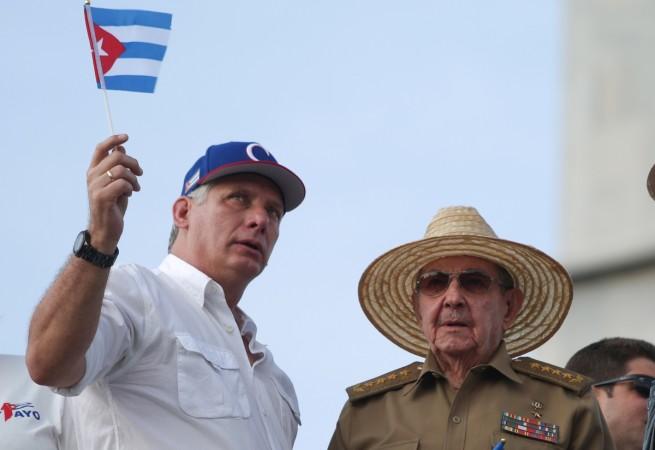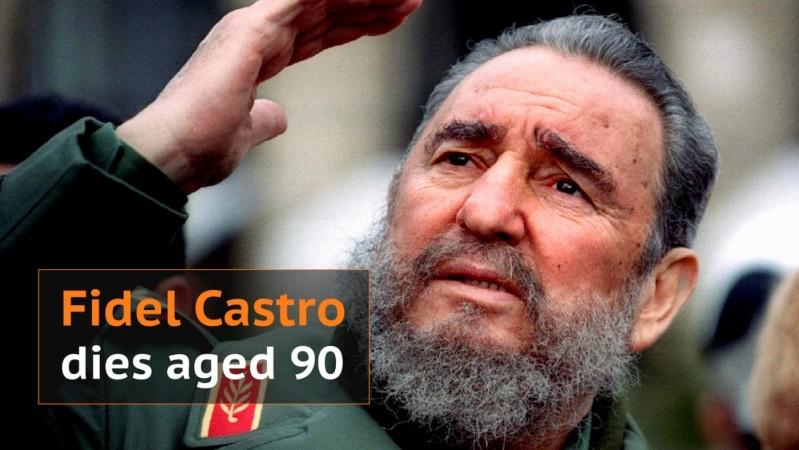Cuban President Raul Castro confirmed Friday that he was stepping down from the leadership of the Cuban Communist Party at its congress, ending six decades of rule by himself and older brother Fidel.
In his opening speech at the four-day event, Raul Castro, 89, said the new leadership would be party loyalists with decades of experience and were "full of passion and anti-imperialist spirit."
Castro had said at the previous party congress in 2016 it would be the last one led by the "historic generation" who fought in the Sierra Maestra to topple a U.S.-backed dictator in the 1959 leftist revolution.

He already handed over the presidency in 2018 to protege Miguel Diaz-Canel, 60, who ran the party in two provinces before joining the national government. The new generation of leaders, which did not forge itself through rebellion, has no easy task.
Transition period
The transition comes as Cuba faces the worst economic crisis since the collapse of former benefactor the Soviet Union, while there are signs of growing frustration, especially among younger Cubans.
"I believe fervently in the strength and exemplary nature and comprehension of my compatriots, and as long as I live I will be ready with my foot in the stirrups to defend the fatherland, the revolution and socialism," Castro told hundreds of party delegates gathered at a convention center in Havana.
The congress, the party's most important meeting, held every five years to review policy and fix leadership, is a closed-door event but excerpts are being broadcast on state television.
Castro himself became acting president when Fidel fell ill in 2006 and later in 2011 party leader, launching a raft of social and economic reforms to open up one of the world's last Communist-run countries that later stalled.
On Friday, he hailed Diaz-Canel as one of the new generation of leaders that was picking up where he left off. Castro's olive green military fatigues contrasted with the civil get-up of his protege, who is widely expected to succeed him as party first secretary, the most powerful position in Cuba's one-party system.
Missing a Castro at Helm
Older Cubans said they would miss having a Castro at the helm, although most acknowledged it was time to pass on the baton. "It's another stage," said Maria del Carmen Jimenez, a 72-year old retired nurse, "but without a double we will miss him."
Castro denounced renewed U.S. hostility under former President Donald Trump. Incumbent President Joe Biden has vowed to roll back some of Trump's sanctions, although the White House said on Friday a shift in Cuba policy was not among his top foreign policy priorities. read more
Castro said Cuba was ready for a "new type of relationship with the United States without ... Cuba having to renounce the principles of the revolution and socialism."

Cuba's new leaders face pressure to speed up reform, particularly economic change, which is foremost on citizens' minds, especially younger Cubans who have known only crisis, analysts say.
A tightening of the decades-old U.S. trade embargo and the coronavirus pandemic have exacerbated a liquidity crisis in Cuba's ailing centrally planned economy. Shortages of even basic goods mean Cubans spend hours lining up to buy groceries.
Reforms
And Havana has dollarized parts of the economy, leaving those who do not receive remittances from family abroad or did not earn hard currency from tourism struggling to get by. That has eaten away at equality, a pillar of the party's legitimacy.
Since the expansion of internet access in recent years, Cubans are increasingly using social media as a platform to express criticism, while online non-state media are challenging the state monopoly of mass media. read more
Tight control of public spaces by the authorities means protests are still relatively rare and small-scale, but they are on the increase nationwide on issues as varied as excessive red tape to curbs on civil liberties.

















